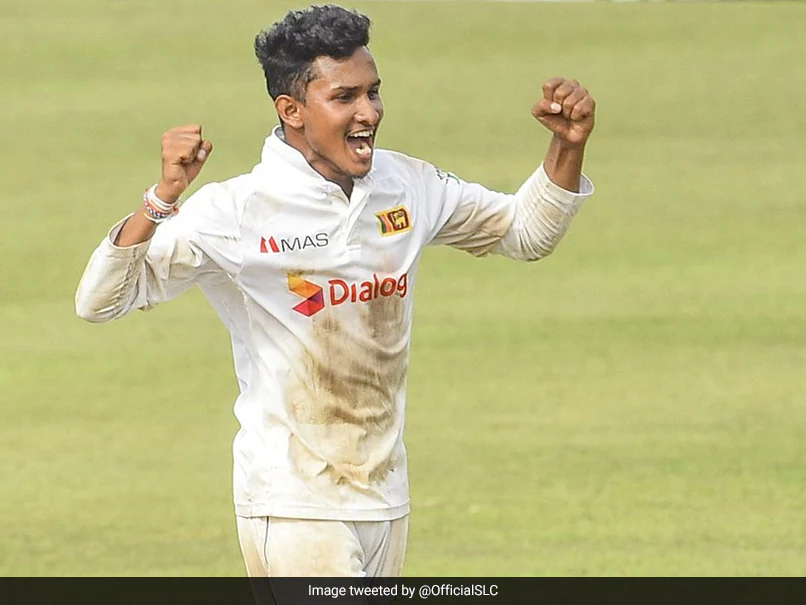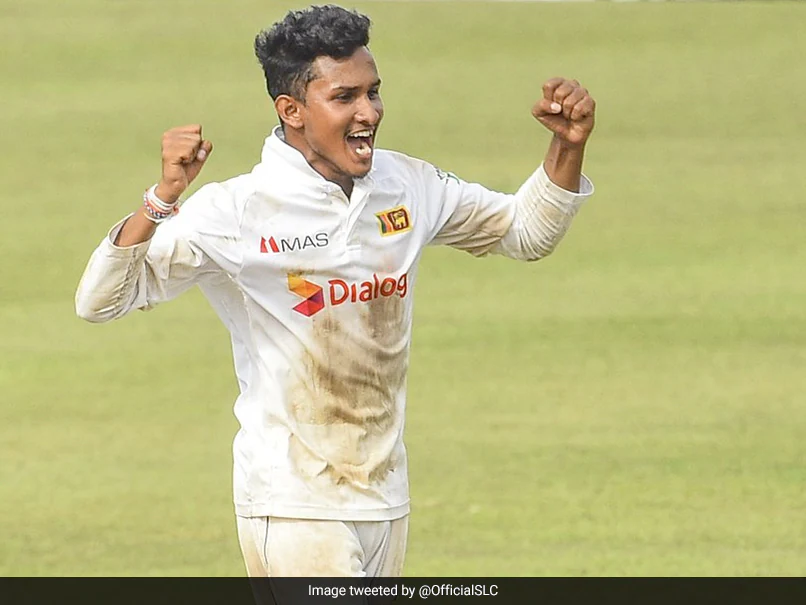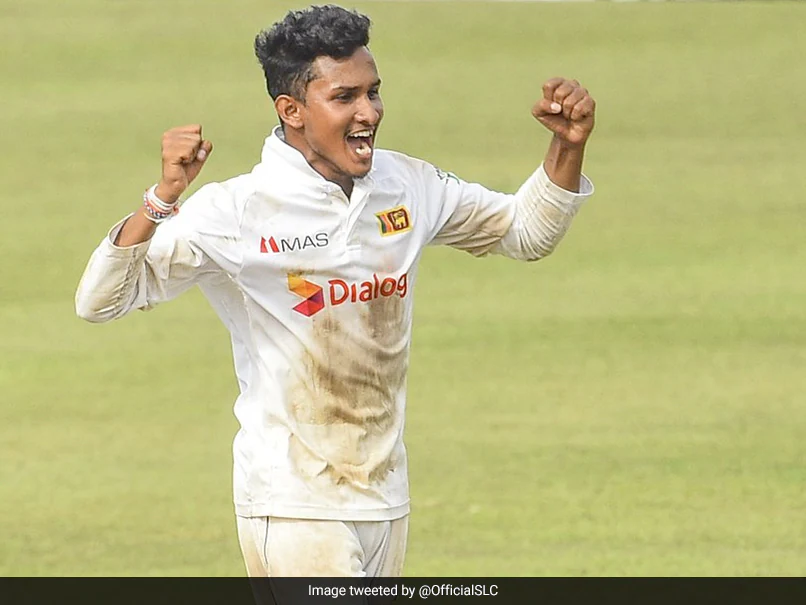
**Praveen Jayawickrama Charged Under ICC’s Anti-Corruption Code**
**Introduction**
In a significant development in the world of cricket, Sri Lankan cricketer Praveen Jayawickrama has been charged under the International Cricket Council’s (ICC) anti-corruption code. The news has sent shockwaves through the cricketing community, raising questions about integrity and ethics in the sport. This article provides an in-depth look at the situation, exploring the details of the charges, the implications for Jayawickrama and the sport, and the broader context of anti-corruption efforts in cricket.
**Background on Praveen Jayawickrama**
Praveen Jayawickrama, a promising left-arm spinner from Sri Lanka, has been making waves in international cricket with his impressive performances. Emerging as one of Sri Lanka’s bright young talents, Jayawickrama has garnered attention for his skillful bowling and potential. His rise in the cricketing world was marked by strong performances in domestic and international matches, positioning him as a key player for Sri Lanka.
**The Charges**
The ICC’s anti-corruption unit has charged Jayawickrama with violations of its anti-corruption code. While specific details of the charges have not been fully disclosed, they generally pertain to actions that undermine the integrity of the game. These charges could include activities such as match-fixing, spot-fixing, or other forms of corruption that affect the outcome of matches or the fairness of competition.

**Investigation and Evidence**
The ICC’s anti-corruption unit conducts thorough investigations to ensure that any breaches of the code are dealt with appropriately. The process involves gathering evidence, interviewing individuals, and analyzing various aspects of the case. In Jayawickrama’s situation, the investigation would have been meticulous, aiming to uncover any actions or associations that might compromise the integrity of cricket. The evidence gathered would play a crucial role in determining the outcome of the case and the subsequent disciplinary actions.
**Implications for Praveen Jayawickrama**
For Jayawickrama, the charges represent a serious challenge both personally and professionally. Being charged under the anti-corruption code can have far-reaching consequences, including potential bans, fines, and damage to one’s reputation. If found guilty, Jayawickrama could face significant sanctions that may affect his cricketing career and his standing within the sport. The process will involve hearings and legal proceedings to determine the extent of the breach and the appropriate penalties.
**Impact on Sri Lankan Cricket**
The charges against Jayawickrama have broader implications for Sri Lankan cricket. As one of the country’s promising talents, the scandal could have a negative impact on team morale and public perception. The Sri Lankan cricket board will likely be involved in addressing the situation, working to uphold the sport’s integrity and ensure that any issues are managed transparently. The incident may also prompt a review of anti-corruption measures and player conduct protocols within Sri Lankan cricket.
**The Role of Anti-Corruption Measures**
The ICC’s anti-corruption code is designed to protect the integrity of cricket by preventing and addressing corruption-related activities. The code includes provisions for investigating allegations, charging individuals, and enforcing penalties. It is part of a broader effort to maintain the sport’s credibility and ensure fair play. The ICC’s anti-corruption unit plays a crucial role in monitoring and enforcing these standards, with the goal of safeguarding the game from corrupt influences.

**Historical Context of Anti-Corruption in Cricket**
Anti-corruption measures in cricket have evolved significantly over the years. The sport has faced several high-profile scandals, which have led to the establishment of robust systems to combat corruption. The ICC’s anti-corruption code and unit were created to address these challenges and provide a framework for dealing with breaches. Historical incidents have highlighted the importance of vigilance and enforcement in maintaining cricket’s integrity.
**Legal and Procedural Aspects**
The legal proceedings related to the charges against Jayawickrama will follow a structured process. This includes hearings where evidence will be presented, and Jayawickrama will have the opportunity to respond to the charges. The outcome will depend on the findings of the investigation and the decisions made by the judicial bodies involved. The process is designed to ensure fairness and transparency, while also upholding the standards of the game.
**Reactions and Responses**
The news of Jayawickrama’s charges has elicited various reactions from the cricketing community. Fellow players, officials, and fans are likely to have differing views on the situation. There may be expressions of support for Jayawickrama, calls for a fair investigation, and discussions about the broader implications for the sport. The cricketing community’s response will be closely watched, as it reflects the impact of such issues on the sport’s integrity and public perception.
**Future of Praveen Jayawickrama**
Looking ahead, Jayawickrama’s future in cricket will depend on the outcome of the legal proceedings and the measures taken by the ICC. If the charges are proven, he may face significant consequences that could affect his career. However, if he is acquitted or the charges are mitigated, he may have the opportunity to rebuild his reputation and continue his cricketing journey. The resolution of the case will be pivotal in determining his path forward.
**Conclusion**
The charges against Praveen Jayawickrama under the ICC’s anti-corruption code represent a significant moment in cricket. As a talented player facing serious allegations, Jayawickrama’s situation highlights the ongoing efforts to maintain the sport’s integrity. The outcome of the investigation and subsequent proceedings will be crucial in shaping the future of both Jayawickrama and the broader cricketing landscape. The incident serves as a reminder of the importance of upholding ethical standards and combating corruption in all aspects of the game.







